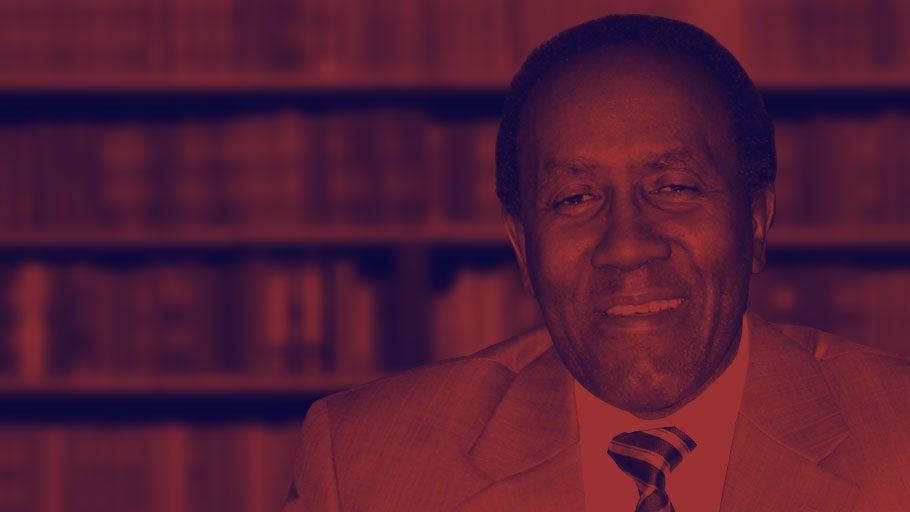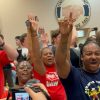The political mass meetings are still in full swing but there will be no general election until perhaps early next year. It means Christmas in Jamaica can be about the imbibing of sorrel and the eating of Christmas fruit cake. As we close out the year, one has the opportunity to reflect on Jamaica’s prospects for 2016 and the years ahead. That introspection entails our encounter with the IMF.
Jamaica has had an epochal experience with the International Monetary Fund. Most activists on the left spectrum would argue that IMF conditionalities invariably lead to the pauperization of the mass of the population. The history of the austerity measures which entail devaluation and drastic cuts in social programs do not necessarily lead to an economic recovery but more economic stagnation. The Jamaican experience under Michael Manley’s government was calamitous for working people and quite damaging for the experiment with making the state more involved with the productive sectors of the economy.
The JLP experience with the IMF was even more disastrous. The Great Recession of 2008 dried up the country’s access to foreign capital markets. This forced the JLP’s Finance Minister, Audley Shaw, to go hat in hand to the International Monetary Fund. The Bruce Golding government failed to adhere to the conditionalities of the IMF agreement and by 2011, the JLP could not put together a budget as it had terminated the relationship with the IMF and had no access to foreign capital markets.
The PNP were returned to office in 2011 and their Finance Minister, Dr. Peter Phillips, entered into extended negotiations with the IMF. The conditionalities were stiff as Jamaica had to begin reducing its yearly budgetary deficit and arrive at a balanced budget within a few years.
The IMF commanded that the accumulated deficit that was a mountainous 150 percent of GDP had to be reduced to a manageable level below 100 percent of GDP. In other words, Jamaica could not continue with its decade-old tradition of fiscal irresponsibility.
The challenge to the new government in 2011 was to reduce the level of debt and enter into a growth path to improve the standard of living of the Jamaican people. This entailed devaluating the Jamaican dollar in its relationship to other world currencies. This ineluctably meant that imported goods would be more expensive and that the inflationary rate would be high. It also meant that additional taxes would have to be imposed on the Jamaican people to balance the budget and to lower the gargantuan accumulated debt. Government would have to allocate less resources in some of the vital services in the country such as health, education and national security.
Over the life of the IMF agreement, the Jamaica government has adopted a course of fiscal discipline. The government has been able to re-enter foreign capital markets and have used that borrowing power to pay down Petro-Caribe debt and through bond maneuvering to reduce the long term debt to approximately 125 percent of Gross Domestic Product.
Rather remarkably, the budget is finally in a balanced state. The plummeting of oil prices in the world market has been a major factor in lowering the inflationary rate. Interest rates for loan have come down and the import/export deficit has narrowed. The expansion of the tourist industry is on track as new investors are planning new hotels on the north coast. The road through the mountains linking Spanish Town to Ocho Rios has been vertically completed. The infra-structure development should facilitate economic growth.
An essential aspect of long term economic growth of the country is creating and operating the logistical hub for vessels going through the expanded Panama Canal. The Chinese are committed to transforming Goat Island into a maritime hub that would create approximately 10,000 jobs.
The Jamaican economy in the last fiscal year grew by 1.5 percent of GDP, insufficient to soak up the chronic surplus labor problem that has plagued the society from the late 1960s. Nonetheless, the economy appears poised for take-off and if Jamaica can increase its growth rate in the next ten years, the class dynamics will change dramatically.
In spheres other than the economic, the political system is far more quintessentially democratic in contrast to the tempestuous years of the 1970s and 1980s. Jamaica now conducts elections with great gusto but devoid of the crippling political violence of yesteryear. There is the broad cultural realization that the intra-class bloodletting did not advance the interest of nation-building. The existence of the non-partisan Electoral Commission has made the administering of the electoral process above reproach.
The performance of the Portia Simpson Miller government has allowed the IMF to reduce the primary surplus necessary to pay down the debt from 7.5 percent of revenues to 7.25 percent. The reduction in the accumulated debt also means that more of the collected revenues can be used for essential services.
Unfortunately, Jamaica will end the year with more homicides in comparison to last year when there were 1,005 homicides. The anticipation was that in 2014, there would have been less than 1,000 homicides for the first time since early 2000. But quite heartening for 2015 is that there has been a drastic decline in extra-judicial killings by the police. The new protocols introduced by Commissioner, Dr. Carl Williams, has been decisive in making the police more accountable in the use of firearms.
As the people of Jamaica sit down to revel in the spirit of Christmas, they can take hope from the accomplishments of the past and that there are great possibilities for the society in the future coming towards us.















